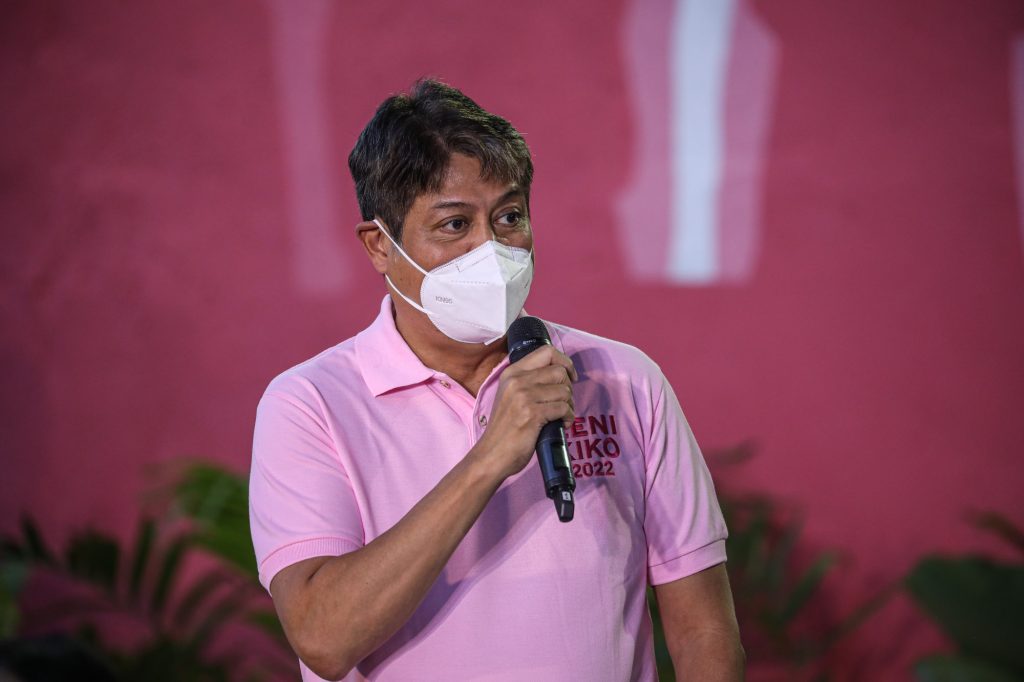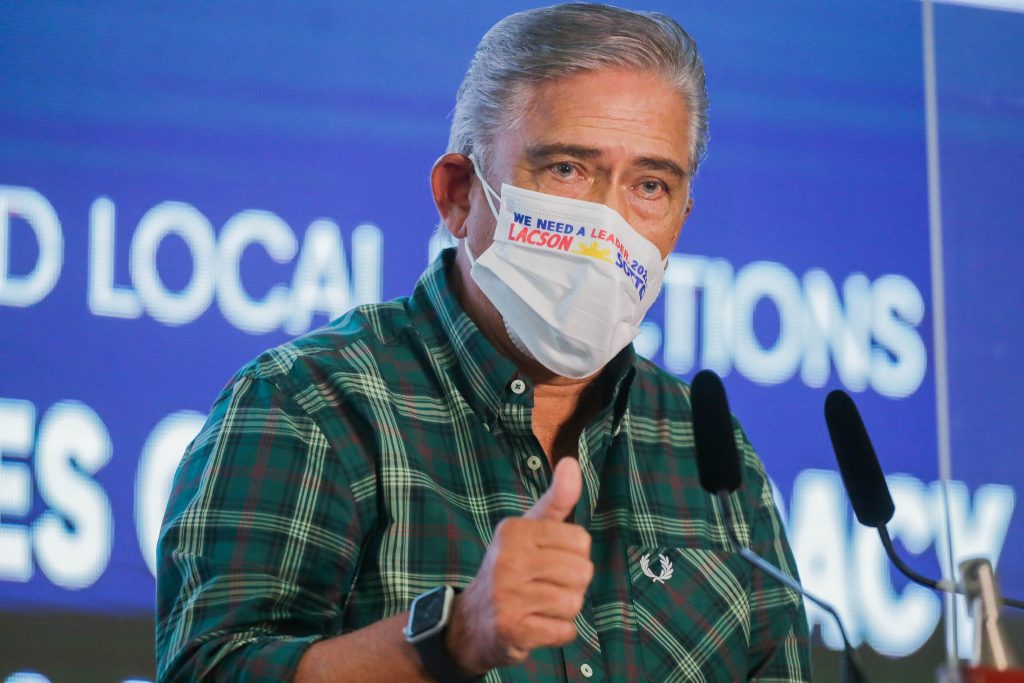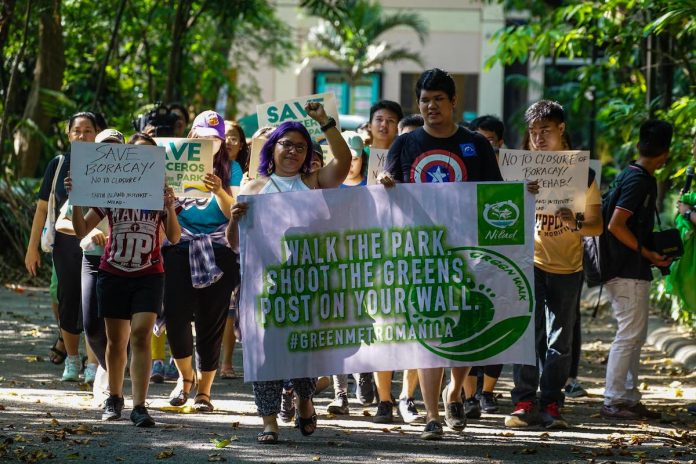As we are deep into the Christmas season, one of the best gifts to receive is the gift of information. It becomes even more valuable when the future of our country is at stake.
The green agenda is the most critical yet overlooked issues heading into the 2022 elections. Prioritizing these climate and environmental issues must not only be the responsibility of our next president, but also the succeeding vice president. As the nation’s two top leaders, they have the most power and influence to place the entire government and the Filipino nation to be on the same page to solve these complex problems.
The question is: Where do the six most prominent vice-presidential candidates stand on the climate and environment agenda?

Willie Ong
A medical practitioner who has the least experience in governance among all candidates, Ong has not provided as many statements that mainly focus on green issues. His stances on issues such as the climate crisis and air quality are presented through the lens of public health.
For instance, Ong has shared on social media how the climate crisis can worsen the spread of diseases such as leptospirosis and cholera, malnutrition from loss of livelihoods due to extreme weather events, respiratory and cardiovascular diseases. He has also warned the public against the harmful effects of mining, especially on mercury poisoning, the continued usage of plastic bags, and exposure to nuclear radiation.
In his posts, he presents to the public existing laws relevant to these issues, such as the Climate Change Act and the Clean Air Act. He also presents concrete ways for the public to avoid these harmful health effects, from dietary options to community mobilization to combat diseases. As the running mate of Isko Moreno, he is likely to share his stance on favoring a joint exploration of the West Philippine Sea with China for resources.

Kiko Pangilinan
The incumbent Senator has called for actions to address the climate crisis, including the reduction of carbon footprints and pollution from different sectors and increased investments for research and development of solutions against local impacts. As the owner of an organic farm, he places an emphasis on food security on these calls, as well as warning on the threats of irresponsible mining. He also supports renewable energy development, including biomass.
Among his Senate bills related to the green agenda include promoting the use of electric and hybrid vehicles to reduce air pollution, improve public health, and support low-income drivers. He is one of the proponents of creating a department dedicated to tackle disaster governance in the Philippines, albeit with key differences from the Department of Disaster Resilience (DDR) that others have pushed for. He is also among the legislators advocating for a ban on single-use plastics.
Pangilinan prioritizes protecting Philippine sovereignty over any exploration of the West Philippine Sea with another country. Should partnerships be formed, he wants to have such deals publicized. On the Kaliwa Dam issue, he wants Filipinos to be prioritized for jobs over the Chinese. As a member of the Senate minority bloc, he has criticized military presence and the alleged lack of transparency during the six-month rehabilitation of Boracay Island.

Tito Sotto
The reigning Senate President has previously called for more ambitious climate action. He has mentioned existing climate change, renewable energy, clean air, and green jobs laws as the core of national strategies to increase climate resilience. Sotto and his Presidential candidate Ping Lacson have recently consulted local government units about climate-related issues, leading to initial plans such as reforestation and carbon emissions testing.
During his stint in the Senate, Sotto has also voted to double taxes being imposed on mining, including on coal. He has supported the suspension of excise tax on oil, another fossil fuel, to cushion price hikes. While he supports the creation of the DDR, he wants to focus first on reducing red tape to improve the efficiency of disaster governance. He has also called for a review of implementation of environmental laws, in support of pursuing development.
Outside of politics, Sotto previously mentioned how his noontime show “Eat Bulaga” implements green initiatives, including providing incentives for those donating plastic waste to turn them into school chairs. However, he was criticized for linking the plastics issue to contraceptives, a key part of the Reproductive Health Law that he opposes.
On other issues, Sotto supports repealing the ban on waste incineration, which could promote waste-to-energy facilities. He is also open to a partnership with China for exploring the West Philippine Sea for resources such as oil and gas. He also does not believe that the Philippine government is involved in extrajudicial killings, including environmental defenders.
So who should you vote for?
Similar to the trends among the presidential aspirants, the green agendas by these vice-presidential candidates are strongly influenced by their political leanings, primary advocacies, and previous or current main professions.
We must remember that economic development is impossible without environmental protection and protecting the rights of peoples, especially the marginalized. These interlinkages must be recognized by our next leaders, who must similarly understand that cohesion among government agencies and other stakeholders is necessary to achieve significant positive change.
It is worth repeating that the candidates’ green platforms are not the only factor in choosing our next Vice-President. They need to have the following characteristics, among others: proven good track records, lack of pending cases or criminal offenses, political will, respect for peoples’ rights and traditions, and unquestionable moral integrity.
Remember that the true winner in the 2022 elections is not the one who is voted into office. Rather, it should be us, the Filipino people, who would benefit from choosing the right leaders for once.
We again call on all candidates to publicize their green platforms to the Filipino nation. We deserve better. We need better for our collective sustainable future.
This is part two of a two-article series presenting the green agenda of the six most prominent candidates for the Philippine Vice-Presidency in 2022. All positions presented here are collected from previous news articles and other publicly-available materials as of 30 November 2021.
John Leo is the Deputy Executive Director for Programs and Campaigns of Living Laudato Si’ Philippines. He has represented Philippine civil society in regional and global UN conferences on climate and the environment since 2017. Candidates may send their environment platforms to [email protected].









